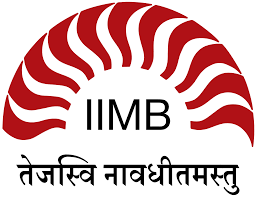
(1).
About MBA Internship and Job Placement
MBA internships and job
placement can vary
depending on several factors such as the specific MBA program, the industry,
and the individual's qualifications and networking efforts. However, I can
provide you with some general information and guidelines.
(A).
MBA Internships
MBA internships are an essential part of many MBA programs and provide students with practical work experience in their chosen field. Here are some tips for securing an MBA internship:
(i).
Utilize your school's resources
Many
MBA programs have career development offices that assist students with finding
internships. They can provide guidance on resume
writing, and interview preparation,
and connect you with potential
employers.
(ii).
Networking
Networking
is crucial for MBA students. Attend career fairs, industry events, and alumni
gatherings to expand your professional network. Reach out to alumni, industry professionals, and faculty members who may be able to help
you find internship opportunities.
(iii).
Online job portals
Explore
online job portals that cater to MBA internships. Websites such as LinkedIn,
Indeed, and Glassdoor often list internship positions specifically targeting
MBA students.
(iv).
Company websites
Research
companies you are interested in and visit their career pages. Many
organizations have dedicated internship
programs for MBA students, and they may list their opportunities on their
websites.
(v).
Proactive outreach
If
you have a specific company or industry in mind, don't hesitate to reach out
directly. Send personalized emails
or make phone calls to express your interest and inquire about potential
internship openings.
(B).
Job Placement
MBA programs often have dedicated career services
departments that assist students with job
placement after graduation. Here are some strategies to improve your job
placement prospects:
(i).
Leverage your network
Networking
remains crucial during the job search
process. Inform your contacts about your job search and ask for referrals
or recommendations. Attend networking
events and industry conferences to expand your connections further.
(ii).
Career services support
Utilize
the resources provided by your MBA program's career services department. They
can help you refine your resume,
practice interviewing skills, and provide job leads or connections.
(iii).
Alumni network
Tap
into your MBA program's alumni network. Many alumni are willing to help fellow
graduates by providing job leads,
mentorship, or referrals. Connect with alumni through networking events,
online platforms, and alumni associations.
(iv).
Industry-specific job boards
Look
for industry-specific job boards or online platforms that cater to MBA
graduates. These platforms often have job listings specifically targeting MBA
professionals.
(v).
Direct applications
Research
companies of interest and directly apply to their job postings. Tailor your
resume and cover letter to highlight how your MBA education and experience
align with the company's needs.
Remember,
securing an internship or job placement requires persistence, proactive
efforts, and a strong professional network. Utilize the resources available to
you, stay proactive in your job search, and continuously develop your skills
and knowledge in your chosen field.
(2).
Why are internships and job placement important in MBA?
Internship
and job placement are essential components of an MBA program for several
reasons:
(1).
Practical application of knowledge
MBA
programs provide students with theoretical knowledge and business concepts.
However, internships offer the opportunity to apply that knowledge in
real-world business settings. Through internships, students gain hands-on experience, develop practical skills,
and understand how to navigate the
complexities of the business world.
(2).
Skill development
Internships
provide an avenue for MBA students to develop and enhance their skills. They
can gain experience in areas such as
leadership, teamwork, problem-solving, strategic thinking, communication, and
project management. These practical skills are highly valued by employers
and contribute to a student's overall professional growth.
(3).
Networking opportunities
Internships
allow students to expand their professional network. By working in a real
business environment, students can connect with industry professionals,
colleagues, and mentors who can provide guidance, insights, and potential job
opportunities. Networking is a vital aspect of career advancement, and internships provide a platform for students
to establish valuable connections.
(4).
Industry exposure
MBA
internships expose students to specific industries or sectors, enabling them to
gain firsthand knowledge of industry
practices, trends, and challenges. This exposure helps students align their
career goals, understand industry dynamics, and make informed decisions about
their future career paths.
(5).
Resume enhancement
Having
relevant internship experience on an MBA student's resume demonstrates the
practical application of skills and knowledge gained during the program. It
adds credibility and increases the chances of being shortlisted for job interviews. Employers often
prefer candidates with internship experience, as it indicates a commitment to
professional growth and an ability to
apply theoretical concepts in real-world situations.
(6).
Job placement and career opportunities
MBA
internships often serve as a pathway to full-time job offers. Many companies
use internships as a means of evaluating potential candidates for permanent
positions. Internships allow students to showcase their abilities, work ethic, and cultural
fit within an organization, increasing the likelihood of receiving a job
offer upon completion of the program.
Generally,
internships and job placement are crucial in MBA programs as they bridge the
gap between theory and practice,
facilitate skill development, expand professional networks, provide industry
exposure, enhance resumes, and open doors to career opportunities. They
contribute significantly to an MBA student's overall learning experience and
increase their marketability in the
competitive job market.
(3).
Top MBA placement-wise college
The placement outcomes of MBA colleges in India can vary from year to year and depend on several factors such as the specific program, industry trends, student profiles, and economic conditions. However, here are some of the top MBA colleges in India known for their strong placement records:
These
institutions are renowned for their rigorous academic programs, experienced faculty,
industry connections, and strong alumni networks. They attract top recruiters
from various industries, including consulting,
finance, technology, and marketing. However, it's important to note that
there are several other MBA colleges in India that also offer excellent
placement opportunities and have produced successful graduates.
When
considering MBA colleges, it's
essential to research and assesses factors such as curriculum, faculty
expertise, infrastructure, industry exposure, alumni network, and placement
records. It's also crucial to align your career goals with the strengths and specializations of the MBA programs to
make an informed decision about the best fit for your aspirations.
(4).
MBA Internship and Job Placement: Trends and Insights
In India, MBA internships and job placements are important components of the overall MBA experience. Here are some trends and insights related to MBA internships and job placements in India:
| (A). Internships | Duration and Timing: MBA internships in India typically last for 8-10 weeks during the summer break between the first and second years of the program. |
| Industry and Role Diversity: Internship opportunities are available across various industries, including consulting, finance, marketing, operations, and more. Students have the chance to explore different functional areas and gain practical experience in their chosen field. | |
| Pre-placement Offers (PPOs): Some companies offer pre-placement offers to interns who perform exceptionally well during their summer internships. These offers provide job security and allow students to focus on their studies during the second year of the program. | |
| (B). Job Placements | Campus Recruitment: Many business schools in India have dedicated placement cells that facilitate campus recruitment by inviting companies to visit the campus and conduct recruitment drives. This allows students to connect with potential employers and secure job offers. |
| Placement Statistics: Business schools often publish placement reports that provide information on average salary packages, industry-wise placements, and job roles secured by students. These statistics can help prospective students understand the placement trends and prospects. | |
| Industry Demand: Certain industries, such as consulting, IT/technology, e-commerce, finance, and FMCG (Fast-Moving Consumer Goods), have traditionally been popular among MBA graduates in India. However, the demand for MBA talent may vary from year to year depending on market conditions and industry trends. | |
| Startups and Entrepreneurship: With the growing startup ecosystem in India, some MBA graduates are opting for entrepreneurial ventures or joining early-stage startups. Business schools often provide support and resources for entrepreneurship initiatives. | |
| (C). Alumni Networks and Corporate Partnerships | (i). Strong alumni networks can play a crucial role in job placements. Alumni who have established successful careers often contribute to the placement process by providing job opportunities, networking connections, and mentorship. |
| (ii). Business schools in India also establish corporate partnerships and collaborations, which can lead to internship and job placement opportunities for students. These partnerships may include guest lectures, industry projects, and recruitment tie-ups. | |
| (D). Skill Development | Employers in India are increasingly emphasizing not just academic excellence but also the development of soft skills and leadership capabilities. Business schools are adapting their curricula to include courses, workshops, and experiential learning opportunities focused on communication, teamwork, problem-solving, and critical thinking. |
Conclusion
Note
It's
important to note that the specific internship and job placement trends can
vary across business schools and regions in India. Prospective MBA students
should thoroughly research the placement records, industry connections, and
support services provided by different institutions. Additionally, networking, building industry contacts,
and actively engaging with career services at the business school can enhance
job prospects.
Also Read:
The
Importance of Networking in MBA Programs
The
Importance of Soft Skills in MBA Programs and Business Leadership
The
Future of Work: Preparing MBA Graduates for a Changing Job Market
Related News
View AllRelated Articles
View AllTrending Articles
View All-
NIRF Ranking 2024 for Top Management Colleges: List of Top Management Institutes in India
Aug, 21, 2024 Read More -
Top NIRF Ranking of Engineering colleges in India 2024
Aug, 20, 2024 Read More -
Top NIRF Ranking MBA Colleges in India 2024
Aug, 16, 2024 Read More -
NIRF Ranking 2024: Top Universities, Colleges, and Key Parameters Explained
Aug, 14, 2024 Read More -
SNAP 2024 Exam: Check SNAP Test 1, 2 & 3 Dates
Jul, 18, 2024 Read More -
Full-Time MBA Programs in India: Top Colleges with Low Fees and High ROI
Jul, 12, 2024 Read More -
Best Banks for MBA Education Loans in India: Top Options and Key Features
Jul, 12, 2024 Read More -
Top Government Jobs and Exams for MBA Graduates in India: Opportunities and Details 2024
Jul, 12, 2024 Read More -
CAT vs XAT for MBA in India: Key Differences and Which Exam to Choose
Jul, 12, 2024 Read More -
Top MBA Scholarships in India: Options for Government and Private Institutions
Jul, 12, 2024 Read More
Trending News
View All-
CAT 2024 Preparation: Exam Format and Time Management Tips
Nov, 21, 2024 Read More -
CAT 2024: Last-Minute Study Hacks to Crack Exam
Nov, 21, 2024 Read More -
Odisha CHSE Board Time Table 2025 Out: Check Exam Dates Here
Nov, 21, 2024 Read More -
SNAP 2024 Registration Deadline Tomorrow: Register Now
Nov, 21, 2024 Read More -
CBSE 10वीं-12वीं की डेटशीट जारी: परीक्षाएं 15 फरवरी से शुरू, PDF डाउनलोड करें
Nov, 21, 2024 Read More -
IGNOU PhD Admission 2024: Registration Deadline Extended to November 25
Nov, 21, 2024 Read More -
NEET PG Counselling 2024: Round 1 Seat Allotment Released – Download PDF Here
Nov, 21, 2024 Read More -
Chhattisgarh NEET PG Counselling 2024: Merit List Released–Check Seat Allotment Date
Nov, 21, 2024 Read More -
CBSE Date Sheet 2025 Released: Check Class 10th & 12th Exam Dates
Nov, 21, 2024 Read More -
CAT 2024 Scheduled for 24 November: Exam Centers, Timing, and Instructions
Nov, 20, 2024 Read More
Related Universities
View All-
Faculty of Management Studies (FMS), New Delhi
-
Indian School of Business (ISB), Hyderabad
-
Indian Institute of Foreign Trade
-
S P Jain Institute of Management and Research, Mumbai
-
Indian Institute of Management Ahmedabad
-
Xavier School of Management, (XLRI) Jharkhand
-
Indian Institute of Management, Calcutta (IIMC)
-
Indian Institute Of Management–Bangalore (IIM–Bangalore)
-
Indian Institute of Management Indore (IIM Indore)
-
Management Development Institute (MDI), Gurgaon











 back
back